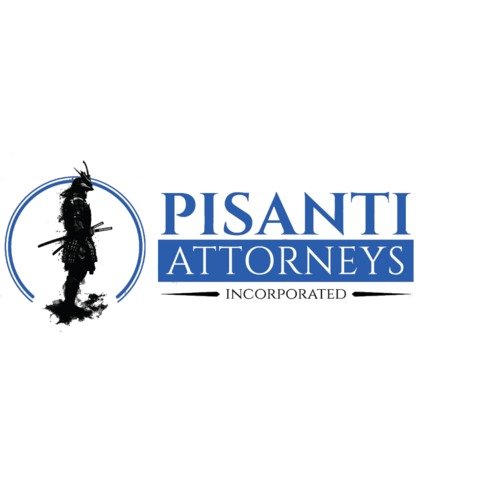Best Child Abuse Lawyers in Germiston
Share your needs with us, get contacted by law firms.
Free. Takes 2 min.
Free Guide to Hiring a Family Lawyer
List of the best lawyers in Germiston, South Africa
About Child Abuse Law in Germiston, South Africa
Germiston, a city in South Africa's Gauteng province, is subject to South African national laws concerning child abuse. Child abuse encompasses any action by an adult that causes harm or potential harm to a child, either physically, emotionally or sexually. In Germiston, as elsewhere in the country, there is a strong legal framework aimed at protecting children's rights and well-being. This framework includes the Children’s Act, which outlines key protections, and the Criminal Law (Sexual Offences and Related Matters) Amendment Act, which addresses sexual offenses against minors.
Why You May Need a Lawyer
Legal assistance may be necessary in several situations regarding child abuse in Germiston. If you suspect a child is being abused, a lawyer can help you understand the legal channels available for reporting abuse and testifying in court. For victims or their guardians, a lawyer can assist in navigating the complex legal processes involved in obtaining protection orders, pursuing criminal charges against the abuser, or seeking custody changes to remove a child from an abusive situation. Additionally, legal representation can provide crucial support in mediation or court proceedings related to foster care or adoption following incidents of child abuse.
Local Laws Overview
In Germiston, child abuse laws are governed by several key acts: 1. The Children’s Act: This legislation emphasizes the protection of children from abuse, neglect, and exploitation. It provides for a range of powers including the removal of children from harmful situations, placing them in foster care, and the issuance of protection orders. 2. The Criminal Law (Sexual Offences and Related Matters) Amendment Act: This act addresses all forms of sexual offenses against children, detailing severe penalties for perpetrators. 3. The Domestic Violence Act: This act provides protections for children exposed to domestic violence, enabling courts to issue protective measures swiftly. These laws collectively provide a robust framework for addressing and preventing child abuse in Germiston, ensuring that perpetrators are held accountable and that child victims receive necessary protections and remedies.
Frequently Asked Questions
What constitutes child abuse under South African law?
Child abuse includes physical, emotional, and sexual abuse or neglect of children. It also encompasses failing to act to prevent such harm.
What actions should I take if I suspect a child is being abused?
If you suspect child abuse, it is critical to report it to the local authorities such as the South African Police Service (SAPS) or a local child protection organization. They can take appropriate measures to investigate and protect the child.
Can I report child abuse anonymously?
Yes, reports of child abuse can be made anonymously to the SAPS or child protection agencies to protect your identity.
What are the potential penalties for a person convicted of child abuse in Germiston?
Penalties for child abuse can vary; they may include imprisonment, fines, or required participation in rehabilitation programs, depending on the severity and nature of the abuse.
Is counseling available for children who have been abused?
Yes, there are numerous government and NGO programs in Germiston that provide counseling and psychological support for abused children.
How can a lawyer help me in a child abuse case?
A lawyer can provide legal advice, represent you in court, help with drafting and submitting legal documents, and assist in enforcement of protection orders.
What should I do if I am falsely accused of child abuse?
It is important to seek legal counsel immediately to understand your rights and prepare a defense. Legal professionals can help ensure the allegations are thoroughly investigated and addressed.
Who is responsible for investigations of child abuse in Germiston?
The South African Police Service (SAPS) and the Department of Social Development typically handle investigations, often working together with child protection organizations.
Are there protective measures available for children at risk of abuse?
Yes, courts can issue protection orders and other legal measures to keep children safe, including placement in safer environments.
What organizations can provide support in child abuse cases?
Several organizations, such as Childline South Africa, offer support and advocacy for victims of child abuse, including legal aid and counseling services.
Additional Resources
If you need further information or assistance with child abuse cases in Germiston, the following resources may be helpful: - South African Police Service (SAPS), information on how to report abuse. - Department of Social Development for child protective services. - Childline South Africa, offering 24-hour counseling and assistance. - Teddy Bear Clinic, providing forensic and therapeutic services to child victims of abuse. - Legal Aid South Africa for free legal services to those who qualify.
Next Steps
If you or someone you know needs legal assistance regarding child abuse in Germiston, the following steps can be helpful: 1. Contact a Lawyer: Reach out to legal professionals who specialize in child welfare cases. They can provide necessary guidance and advocacy. 2. Report the Abuse: Contact the SAPS or a trusted child protection agency to officially report suspected abuse. 3. Seek Support: Utilize counseling services and support groups for emotional and legal assistance. 4. Document Everything: Keep detailed records of anything relevant to the abuse claims, including dates, times, and witness information. 5. Protect the Child: Prioritize the immediate safety and well-being of the child involved, potentially exploring protective orders or safe housing options.
Lawzana helps you find the best lawyers and law firms in Germiston through a curated and pre-screened list of qualified legal professionals. Our platform offers rankings and detailed profiles of attorneys and law firms, allowing you to compare based on practice areas, including Child Abuse, experience, and client feedback.
Each profile includes a description of the firm's areas of practice, client reviews, team members and partners, year of establishment, spoken languages, office locations, contact information, social media presence, and any published articles or resources. Most firms on our platform speak English and are experienced in both local and international legal matters.
Get a quote from top-rated law firms in Germiston, South Africa — quickly, securely, and without unnecessary hassle.
Disclaimer:
The information provided on this page is for general informational purposes only and does not constitute legal advice. While we strive to ensure the accuracy and relevance of the content, legal information may change over time, and interpretations of the law can vary. You should always consult with a qualified legal professional for advice specific to your situation.
We disclaim all liability for actions taken or not taken based on the content of this page. If you believe any information is incorrect or outdated, please contact us, and we will review and update it where appropriate.









